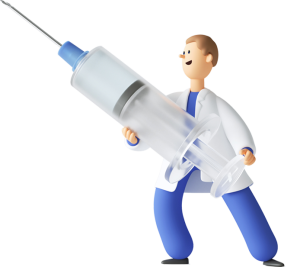
- admin
- Posted on
Factors impacting fertility health: What experts suggest
Couples who are planning a pregnancy must alter their lifestyle before conception.
Worldwide declining fertility rates have become a worrying trend resulting in an increase in the number of couples seeking medical help to start a family. Contrary to popular perception, this increase in infertility is not just limited to women. Male infertility has also seen a steep rise in the last few years.
Every couple has unique challenges and the success of assisted reproduction techniques like In Vitro Fertilization (IVF) depends on a combination of several factors. These factors can range from lifestyle changes which are influenced by economic and social change, or biological factors. The list is exhaustive but we have tried to cover some of the major causes here.
Age
One of the main factors is the age of the female partner. As women join the workforce, it has become a common trend to delay pregnancies beyond the age of 32. That is becoming one of the major causes for infertility.
Conception depends on the quality and quantity of eggs so the chances of success of ART procedures like IVF also reduce with increasing age. The rates for genetically normal embryos in IVF (euploid blastocyst) drop significantly from 60 per cent in women less than 35 years of age to 30 per cent or lower in women aged 40–42 years, while age-related aneuploidy increases considerably according to recent data.
Also, ovarian ageing in Indian women is 7 years ahead of their Caucasian counterparts, making it imperative to plan a family on time.
Male Factor Infertility
Fertility in men is on the decline owing to changing lifestyles, obesity and increased stress levels. This has been recognised by the World Health Organisation as the minimum requirement for normal sperm count in semen analysis for men is now reduced from 20 to 15 million per ml.
Today, male factor infertility contributes to about 40 percent of all infertility cases, making it as big an area of concern as female infertility.
Smoking
Smokers take in about 7,000 chemicals all over the body, which for women lead to problems in ovulation, irregular periods, cause damage to reproductive organs and premature menopause. Women who smoke also stand at a higher risk of miscarriages and tobacco can cause changes in the cervical mucus. In men, smoking is known to reduce both the quality and quantity of sperms.
It is important to remember that passive or second hand smoking is just as damaging as active smoking. It can also lead to Sudden Infant Death Syndrome (SIDS), making it very dangerous for the baby. Couples planning to have a child should completely stop smoking.
Alcohol and drugs
Some studies suggest that drinking more than five counts of alcohol in a week can cause a reduction in female fertility levels. In men, excessive alcohol consumption leads to difficulty in erection, ejaculation and sperm quality.
Recreational drugs like cocaine, marijuana, heroin and over the counter steroidal anti-inflammatory drugs like ibuprofen can interfere with ovulation. Steroids taken to increase body mass by fitness enthusiasts in an attempt to build body mass can limit sperm count and in many cases, the damage can be permanent.
Obesity
Overweight women with irregular periods are less likely to ovulate. In fact, a weight loss of just 5-10 per cent can restore the regular menstrual cycle and increase chances of getting pregnant. Men who are overweight are prone to have suboptimal sperm counts, which can also cause infertility.
Even after conception, overweight women are prone to first trimester abortions, diabetes and hypertension during pregnancy which can lead to complications in delivery, higher chances of C-sections and infections.
It is important to lead a balanced lifestyle, with healthy eating habits and moderate exercise, as excessive exercise can also cause hormonal imbalance. A Body Mass Index (BMI) between 18 and 24 is considered to be optimum.
Endocrine disruptors
In the recent years, our exposure to chemicals from the air, food and water has increased. Although Endocrine Disruptors (EDs) are present everywhere, right from our fruits and vegetables, meat, water, personal care goods, and even in the air we breathe, the major route of human exposure is ingestion through food, plain water and beverages.
Plastic packaging and payment charge slips are another major source of EDs which have long-term adverse effects on the human body. They are associated with serious effects on male and female reproductive health, cause diabetes, obesity, metabolic disorders and increase the risk of cancer.
They are known to cause serious harm in pubertal growth and semen quality of young boys. EDs can impact eggs, sperms and embryos and can therefore affect the potential long term health of the child.
Stress
Stress is a predominant part of our lives today and the process of infertility itself, along with its treatment, is stressful. Increased levels of stress for men may reduce Luteinizing Hormone (LH) and testosterone, thereby affecting sperm quality and spermatogenesis. This has a direct correlation with infertility.
According to recent evidence and study, the perceived stress of providing a semen sample was reported to be negatively linked to a 39 per cent decline in sperm concentration, 48 per cent in motility and overall poor parameters when sought on the day of egg collection for IVF.
Final word of advice
Modifiable lifestyle factors play a crucial role in development of infertility and have been a growing cause for concern. These include age, psychological stress, nutrition, physical activity and high scrotal temperatures.
Couples who are planning a pregnancy must alter their lifestyle before conception. Simple changes like eating natural food, reducing exposure to chemicals, giving up alcohol and smoking, keeping the air inside the home clean, maintaining a healthy weight, and adding Vit C, Vit D and Zinc supplements make a huge difference. Avoid EMF radiation devices, paraben containing products and throw away the printed bills.
Consumption of leafy green vegetables and beans is good for ovulation and regular exercise keeps the body and mind fit. Practicing mindfulness and yoga to keep stress at bay can go a long way in preventing infertility.

